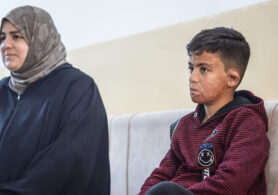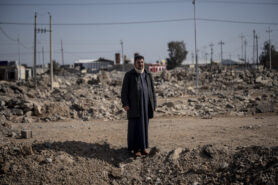On March 14, the Dutch cabinet issued an official response to the Sorgdrager Committee’s report on the airstrike in Hawija. Sorgdrager’s report presented harsh findings on what went wrong before, during, and after the operation, as well as lessons for the future. In light of these findings, current Minister of Defense, Ruben Brekelmans, has formally apologized for the airstrike, which killed at least 85 civilians and led to widespread destruction in the area. PAX published a reflection on these developments, and like PAX, IRW welcomes the Dutch government’s official apology as an important step forward but emphasizes the continuing need for advocacy to ensure justice for the victims of Hawija.
In 2021, PAX, IRW, and other civil society partners collaborated to investigate the impact of the Dutch operation on the people of Hawija. Interviews with more than 100 individuals, both directly and indirectly affected by the airstrike, revealed a nearly unanimous call for recognition, apologies, and financial compensation from the Netherlands. While the official apology by Brekelmans marks an important step forward, the Dutch Ministry of Defense has expressed it is unwilling to provide financial compensation.
The apology was provided directly to the mayor of Hawija and was generally well received. However, the victims continue to call for a Dutch delegation to visit Hawija in person to offer a direct apology.
Along with this apology, the Netherlands has committed to improving its policies regarding civilian casualties by increasing transparency, reporting annually, providing specialized training programs, and incorporating feedback from civil society actors. These measures align with recommendations from various organizations, including IRW, to better protect civilians during military operations. This represents a proactive international effort by the Netherlands to improve civilian protection.
Read the full reflection of PAX by clicking on the following links:



